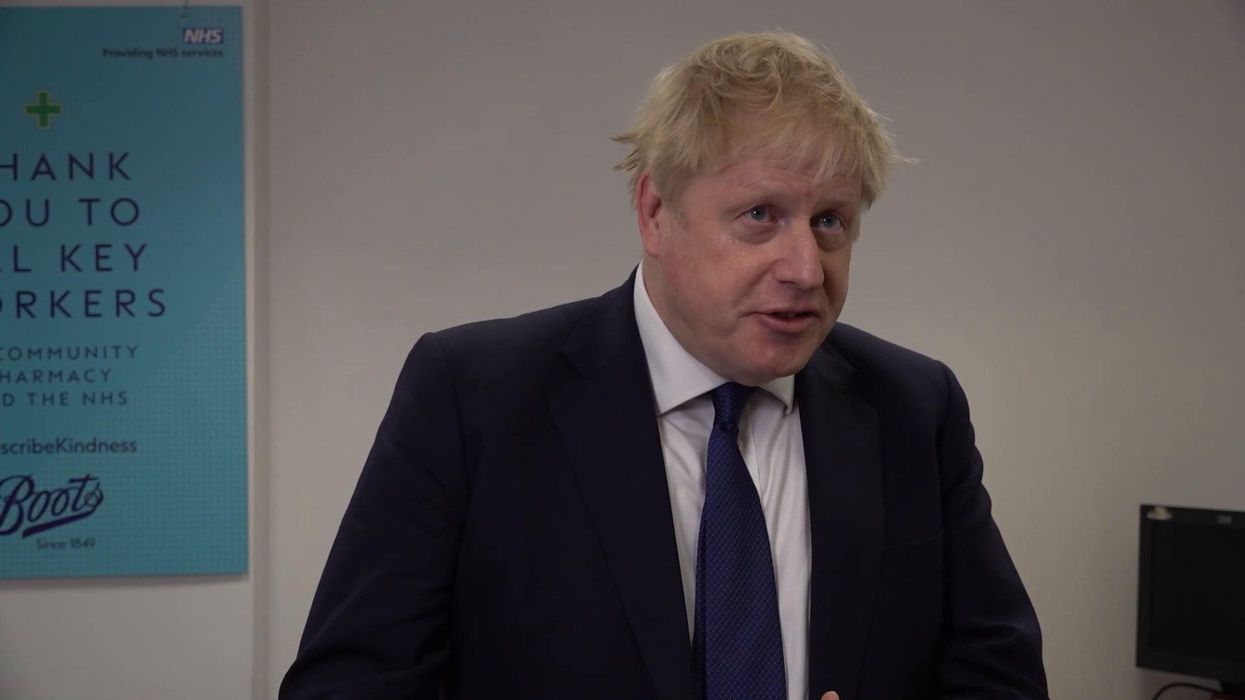News
Elaine McCallig
Jan 21, 2022
Boris Johnson says government has ‘got to help people’ with energy costs
Independent TV
Food writer Jack Monroe has explained the brutal reality of the cost of living crisis in a viral Twitter thread.
A recent Office for National Statistics (ONS) survey found that two-thirds (66 per cent) of UK adults have seen their cost of living jump over the past month as energy bills soared and price rises filtered down to supermarket shelves, while official figures on Wednesday showed that inflation soared to a near 30-year high of 5.4 per cent in December.
Mother-of-one Monroe said the 5 per cent figure “grossly underestimates” the real cost of inflation, and provided examples of how the cost of living crisis is hitting our pockets in a viral thread.
Sign up to our free Indy100 weekly newsletter
Highlighting how the rising cost of grocery staples hits the “poorest and most vulnerable households”, she claimed that last year, the cheapest rice at her supermarket was 45p for a kilogram bag, but today it’s £1 for 500g - a price increase of 344 per cent.
Despite necessities increasing, she noted that the prices of upmarket ready meals, for example, have remained the same price.
Now, picture if you will, the demographic of the voter who has kept the current Party in power for the last 11 years. Imagine the Chancellor having to explain to them that their precious microwave dinner now cost almost four times what it did yesterday.\n\nYeah, didn\u2019t think so.— jack monroe (@jack monroe) 1642601488
She wrote: “The margins are always, always calculated to squeeze the belts of those who can least afford it, and massage the profits of those who have money to spare. And nothing demonstrates that inequality quite so starkly as tracking the prices of ‘luxury’ food vs ‘actual essentials’.”
In another thread posted yesterday, she highlighted the impact of not being able to afford food. She said: “If you’ve never nibbled a stock cube to try to ease hunger pains, or drunk the formula milk that the foodbank gave your baby, you really have no business trying to tell people who have experienced real poverty that we ‘just don’t understand economics’. Oh, we really f***ing do.”
“If you’ve never used a sock as a sanitary towel, or the free newspaper from outside the train station, if you’ve never cried at a checkout because the 6p price rise on a jar of jam meant you and your kid were having dry toast all week, sit down and listen to those of who have.”
Although she has food in her cupboard now, she said she still worries at the checkout.
I\u2019m done being polite now. Done with rules of averages that don\u2019t take into account millions of peoples horrible, traumatising, hungry days and nights and days on end. My DMs are full of people who are still tormented by their own experiences. Just sit down and LISTEN to us.— jack monroe (@jack monroe) 1642690147
Experts have warned that the cost-of-living squeeze will get even tighter over the next few months as gas and electricity tariffs are expected to rise by around 50 per cent in April.
Amid the energy crisis, Age UK has today revealed that more than three in five pensioners (62 per cent) - equivalent to 7.8 million older people - are worried now about heating their homes, compared to 43 per cent just six weeks ago.
An open letter from the charity urging the prime minister to protect older people from unaffordable energy bills has received over 77,000 signatures.
The petition calls for the 5 per cent rate of VAT to be scrapped from April until at least the end of 2022, and for a one-off payment of £500 to people on low incomes who qualify for the cold weather payment.
Age UK said a 78-year-old woman told the charity: “I simply cannot cope with even higher bills.”
Another woman, aged 74, said: “If my energy bills increase as much as predicted, despite the help already given, I will not be able to heat my house, eat, feed my little dog, my only companion, and pay my bills without going into further debt as my savings have already been eaten away.”
The business secretary, Kwasi Kwarteng, has said households will need to wait until March to find out if a scheme reportedly under consideration to hand out £500 one-off payments to help with energy bills will go ahead.
'This \u00a3500 payment, is that something you would welcome?'\n\nBusiness Secretary Kwasi Kwarteng says he would 'welcome any measures that deal with this problem'. It has been reported millions of families could get a \u00a3500 payout to help with soaring energy bills.pic.twitter.com/EQrdJ4wSSm— Good Morning Britain (@Good Morning Britain) 1642754417
It has been reported that Chancellor Rishi Sunak is considering making direct payments of up to £500 to struggling families as the cost of energy bills are set to soar.
But Kwarteng said the government was “trying to work out the best way to deal with what is a really, really serious problem”.
Additional reporting by PA.
Top 100
The Conversation (0)














